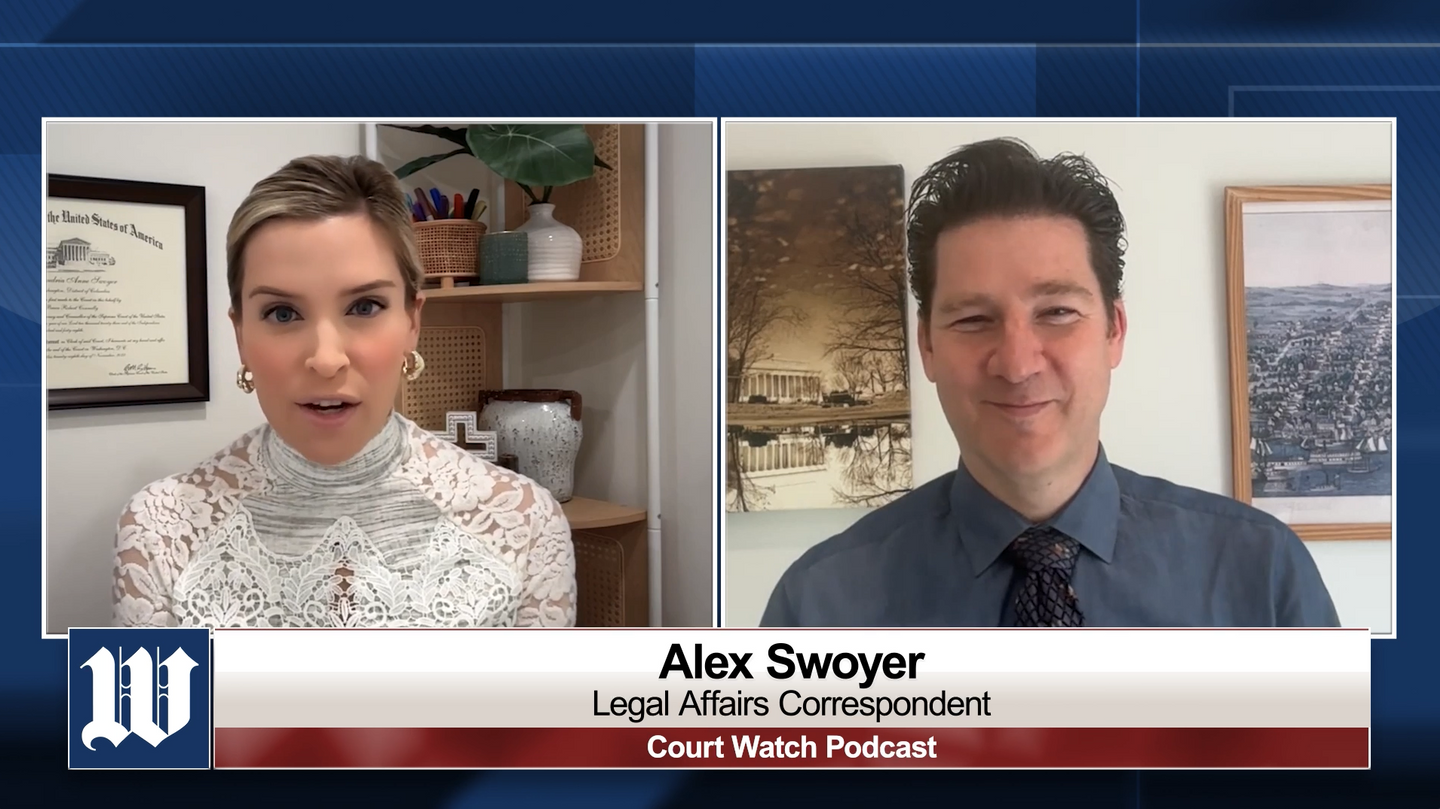
Thank you for being a valued subscriber to The Washington Times. We appreciate your support for honest, in-depth journalism and hope you enjoy this exclusive conversation on the U.S. Supreme Court and birthright citizenship with Washington Times legal affairs reporter Alex Swoyer and Washington Times senior reporter and editor, Stephen Dinan.
[DINAN] We were both following an interesting case in the Supreme Court with — birthright citizenship is what it was billed as — but it really turned into more as a discussion about universal or nationwide injunctions. What is a universal injunction?
[SWOYER] We’ve been seeing more and more, this became something since the 1960s when they think the first nationwide universal injunction had been implemented. And then there’s been a steady rise we saw of them during the Obama administration and then just recently an explosion of them under President Trump. It’s when a lower court, a district court judge, issues a blockade on a national policy.
President Trump signed the executive order right when he took office looking to end birthright citizenship. And that then led to at least three courts that have stepped in and issued a universal injunction, blocking the policy from taking effect. And the challengers are states as well as individuals who say, “wait, wait, wait, this runs afoul of the 14th Amendment.”
[DINAN] The order the president signed limited birthright citizenship recognition. It said if you are a child of an unauthorized migrant, an illegal immigrant or the child of a temporary visitor, someone who’s here on a tourist visa or a student visa or something like that, something that’s not a permanent immigration status, and you’re a child of those parents, you don’t get automatic citizenship.
There are a whole bunch of different reasons why they might want to limit that, but that’s the policy. I think I counted four or five different lawsuits filed within hours of the policy. And so there were three different judges in different locations across the country that issued nationwide universal injunctions. And those injunctions said, even though it was states or individual groups that sued, the judge said this applies to everybody, not just to the plaintiffs in front of us.
And the administration says, hey, what courts do is they judge cases in front of them and they judge them on the plaintiffs in front of them. Somebody, Texas, doesn’t want to stop this policy; Texas didn’t sue and yet you’re making us have to stop our policy for Texas.
[SWOYER] And that’s how we got to the Supreme Court, right? That’s how the Trump administration has taken this issue to the Supreme Court. Not necessarily on the birthright citizenship issue directly, but on the nationwide injunction, universal injunctions, you call them the same thing. And that’s what we thought we were going to hear a lot about yesterday. We did hear a lot about it and also about birthright citizenship.
[DINAN] So you were in the courtroom and I’m curious, did you get a clear sense on where they stand on birthright citizenship?
[SWOYER] Whenever I’m in the court, there’s no computers, no phones, not even an Apple Watch, nothing. You just take in a pen and pad and your daily call sheets, who’s arguing for what side, so you know the lawyer’s names. And you, of course, were listening live, so if there was breaking news, you could write right away, which was helpful.
I like to jot down where I think, if there’s one of the justices that it’s clear from their line of questioning where they’re gonna fall. And Justice Sotomayor, she stood out. She always kind of does.
[DINAN] On both issues of birthright and on the injunction issue.
[SWOYER] Very, very true. And one of the things with the nationwide injunction issue, since that’s actually the question that the court took, where we’re thinking they’re going to make some sort of potential lines for lower courts to follow on when they can issue these nationwide injunctions, I’m not really sure, we’ll see the opinion when we get it.
But she brought up a really good example. What if this was about firearms and the government was gonna come in and take everyone’s firearms? How do you just block that in one jurisdiction?
What was your take on Justice Sotomayor?
[DINAN] She was definitely the most vocal on both those issues. It’s pretty clear where she stood. On birthright citizenship, she said, she told the solicitor general — who’s the lawyer arguing the case for President Trump — she said, “Look, I can count four different precedents that the president’s executive order violates.”
So it’s clear that she thinks that it is unconstitutional what the president did. And then, the gun example. For conservatives who might be eager to support the president’s birthright citizenship order, she was very pointedly saying, “Hey, be careful what you wish for here.” Because if this is okay for a president to come in and issue an executive order stripping birthright citizenship or recognition of birthright citizenship, then what’s to stop a Democratic president from coming in and saying, “I’m going to confiscate all your guns.”
And if you don’t have nationwide injunctions, then a single judge in Washington would have to say, “Yeah, I’m going to stop you there,” but every single gun owner in the country would have to, under Sotomayor’s vision, would then have to go ahead and sue, file their own lawsuit, in order to get their own rights asserted if you don’t have a nationwide injunction.
Watch the video to see the full conversation.
Click here for more exclusive events and conversations just for Washington Times subscribers.
Click here to become a subscriber.












